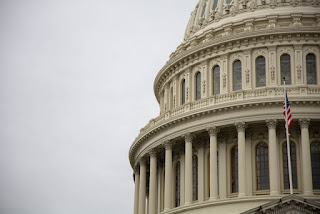October 6, 2021
Congress to Consider Several Abortion-Related Spending Bills this Fall
California Gov. Signs Bill Allowing Minors to Hide Abortions from Parents
 |
| CA. Gov. Gavin Newsom photo credit: Gage Skidmore / Flickr |
October 5, 2021
Women Sue Abortionist Whose Abortions Left them Sterile
 |
| screenshot by LifeSiteNews |
New Report Shows Abortion Pill Reversal to be Safe and Effective
"prescribe bioidentical progesterone to outnumber and outcompete the mifepristone in order to reverse the effects of the mifepristone. An ultrasound is performed as soon as possible to confirm heart rate, placement, and dating of the pregnancy. The progesterone treatment will usually continue through the first trimester of pregnancy in an attempt to reverse the effects of the mifepristone."
The Lozier report points out that progesterone has been used since the 1950s to reduce the risk of miscarriage and premature birth. It cites two studies (PROMISE and PRISM) demonstrating that progesterone therapy increases the live birth rate and doesn't create safety issues.
October 4, 2021
Pro-Life Representatives Slam "Women's Health Protection Act"
October 1, 2021
40 Days for Life Campaign Saves Over 50 Babies in First Five Days
 |
| photo credit: 40 Days for Life blog |
Federal Judge Blocks Arizona's Discriminatory Abortion Ban
September 30, 2021
Parental Notice Repeal and TEXAS Act to be Considered During Fall Session
Cook County Board to Consider Resolution to "Cancel" Texans and Businesses
September 29, 2021
UN Officials Tell Supreme Court to Maintain Abortion Precedent
Illinois University Professors Argue that Texas Abortion Ban Harms Trans Men
"A trans man living in Texas may choose to conceal his transgender status to coworkers, friends and even in-laws to protect himself from violence and gender dysphoria. As his abdomen grows due to a pregnancy for which he can no longer legally get an abortion, however, keeping identity private in public spaces may become next to impossible.The abortion ban in Texas imposes the burden of pregnancy — and with it, the burden of potential dysphoria, being outed or violence — on trans and gender nonconforming individuals without viable alternative choices."
Setting aside the arguments surrounding the idea of transgenderism, the professors' argument is troubling on a humanitarian level. One human life should not be ended for the sake of another person's emotional or mental health. All lives have value, and the choice offered by abortion disregards that value.
By intentionally ending the life of a human being, abortion cannot be considered "health care" as the Northwestern professors assert.
September 28, 2021
Pro-Life Legislators Ask DOJ to Investigate Illegal Fetal Tissue Research
Texas Bans Mail Delivery of Abortion Pills
 |
| Texas Gov. Greg Abbott (R) |
September 27, 2021
House Passes Legislation to Codifying Abortion Rights
September 24, 2021
Women's Health Protection Act Threatens to Codify Abortion Rights
- restrict discriminatory abortions based on race, sex, or genetic abnormality
- ban post-viability abortions
- introduce safety requirements for chemical abortions
- restrict taxpayer funding of abortion
September 23, 2021
Biden to Direct $10 Million in Grants to Abortion Businesses after Texas Heartbeat Act
 |
| HHS Secretary Xavier Becerra photo credit: Gage Skidmore / Flickr |
Supreme Court Announces Hearing Date for Dobbs Case
The case is a challenge to Mississippi's Gestational Age Act, which restricts abortion after 15 weeks gestation. While defending the law, the state of Mississippi has asked the Supreme Court to reconsider its decision in Roe v. Wade. The law includes exceptions for when the mother's life or “major bodily function” is at risk. It also includes an exception for when the unborn child is diagnosed with a condition that is “incompatible with life outside the womb.”
The Supreme Court will consider, “Whether all pre-viability prohibitions on elective abortion are unconstitutional.”
President Biden's Justice Department filed an amicus brief Monday requesting the court to maintain the current legal framework for legalized abortion.
September 22, 2021
Google Quashes Abortion Pill Reversal Ads
 |
| Rebekah Hagan with her son Zechariah, whose life was saved from the abortion pill by Abortion pill reversal. Photo from the 2020 March for Life/Lisa Bourne |
Texas Abortionist Sued After He Admits to Breaking Texas Heartbeat Act
September 21, 2021
Pope Francis to Reporters: "Abortion is murder."
 |
| Pope Francis |
"Abortion is more than an issue. Abortion is murder. Abortion, without hinting: whoever performs an abortion kills. You take any embryology textbook of those students that study in medical school. At the third week of conception, at the third, many times before the mother notices, all the organs are already there. All of them. Even the DNA. […]"
"It’s a human life, period. This human life must be respected. This principle is so clear. And to those who can’t understand it I would ask two questions: Is it right, is it fair, to kill a human life to solve a problem? Scientifically it is a human life. Second question: Is it right to hire a hitman to solve a problem? I said this publicly […] when I did, I said it to [Radio] COPE, I have wanted to repeat it. And period. Don’t continue with strange discussions: Scientifically it’s a human life. The textbooks teach us that. But is it right to take it out to solve a problem? This is why the Church is so strict on this issue because accepting this is kind of like accepting daily murder."













